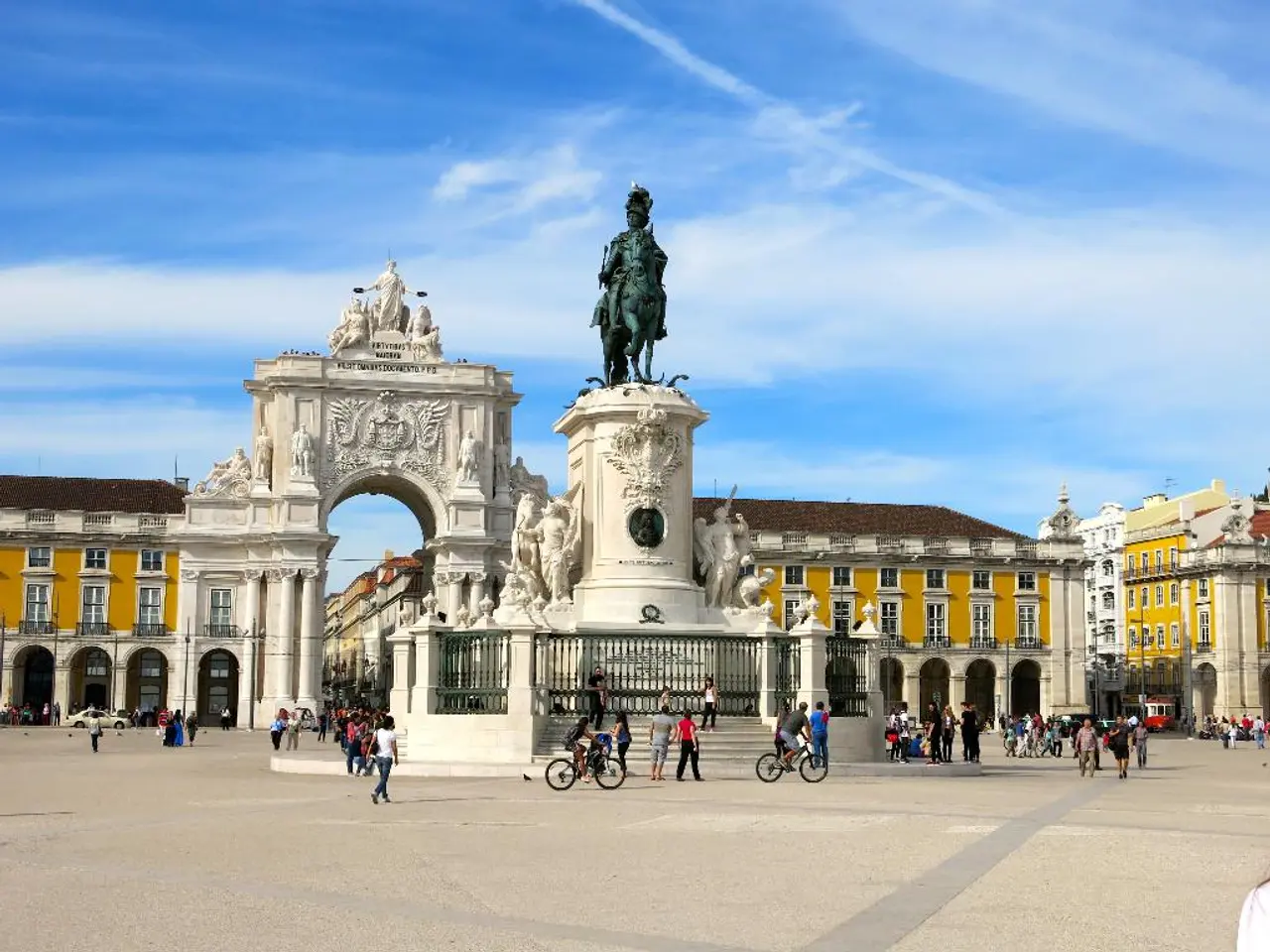Unveiling the Problematic Aspects of Travel and Leisure
Freiburg, Germany, is gearing up for the Freiburg Biennale 2025, a multidisciplinary event running from June 5 to July 27. The event promises to critically engage with the city's urban and social dynamics, focusing on how tourism and global forces shape Freiburg's structures and communities [1][3][5].
Freiburg, known for its picturesque old town, the minster, and its southern flair, experienced a significant increase in tourism in 2024. The tourist experts of FWTM (Freiburg Wirtschaft Touristik und Messe) reported a 2.4% increase from 2023 and a 19.4% increase from 2019, with 2.17 million overnight stays [2]. However, the specific reasons for this increase remain undisclosed.
The Biennale, organized by the Verein Perspektiven für Kunst in Freiburg since 2021 and funded by the Zentrum für Kulturelle Teilhabe Baden-Württemberg, reflects various aspects of global tourism. Under the artistic direction of Lorena Juan, the event aims to rethink urban spaces in relation to tourism and globalization [1].
The program includes participatory formats encouraging the public to engage in debates about the city's livability amid growing tourism. The artistic and scholarly discourse spotlights social, economic, and cultural impacts of tourism on urban coexistence, aiming to develop feminist and post-colonial utopias for solidarity in city life [3].
Among participating artists are the contemporary duo !Mediengruppe Bitnik from Berlin, known for their explorations of digital influence on physical urban spaces. Their performative piece ‘1 ⭐ Review Tour’ humorously critiques digital rating systems' effects on city sites [3]. Other artists involved include Selena Savić & Gordan Savičić, performers Ingrid Hideki, Vallia AKA Vallien, Caesaria Mastropos, and curators such as Lorena Juan [3][5].
By using Freiburg itself as a living exhibition space, the biennale investigates how urban spaces can be rethought in relation to tourism and globalization [1]. The events aim to raise awareness about urban development challenges and opportunities, fostering dialogue among experts in geography, urban planning, art, and tourism research [3].
The festival's prozessorientierter (process-oriented) and participatory approach enables audiences to experience the city differently, stimulating new perspectives on coexistence in an evolving urban landscape [1]. Independent project spaces such as the Pförtnerhaus and the Kaiserwache are integrated into the Biennale.
The "South" is often the object of desire, often linked to romanticized and exoticized images of paradise. However, the Biennale also critically addresses commercialization, exoticization, and belonging in Freiburg, inviting reflection on historical and contemporary urban narratives [1].
It is worth noting that while the increase in tourism in Freiburg is significant, no information is available about any measures taken by the city or FWTM to manage this growth. The Schauinslandbahn, a popular tourist attraction, becomes a work of art with redesigned gondolas featuring flaming motifs, adding to the city's cultural offerings.
In conclusion, the Freiburg Biennale 2025 serves as a platform to critically engage with Freiburg’s urban and social dynamics through art, fostering dialogue and encouraging reflection on the city's tourism, urban development, and global power structures.
References: [1] Freiburg Biennale 2025. (2025). Retrieved from https://www.biennale-freiburg.de/ [2] FWTM (Freiburg Wirtschaft Touristik und Messe). (2025). Retrieved from https://www.fwtm.de/ [3] Perspektiven für Kunst in Freiburg. (2025). Retrieved from https://www.perspektiven-kunst-freiburg.de/ [4] Zentrum für Kulturelle Teilhabe Baden-Württemberg. (2025). Retrieved from https://www.zkt-bw.de/ [5] !Mediengruppe Bitnik. (2025). Retrieved from https://www.mediengruppe-bitnik.org/
The Freiburg Biennale 2025, with its focus on urban spaces in relation to tourism and globalization, promotes discussions about the effects of global forces on Freiburg's structures and communities, including its lifestyle, home-and-garden, and travel sectors.
The biennale, in its process-oriented and participatory approach, encourages audiences to rethink Freiburg's urban spaces, potentially leading to improvements in economic and social policy.




